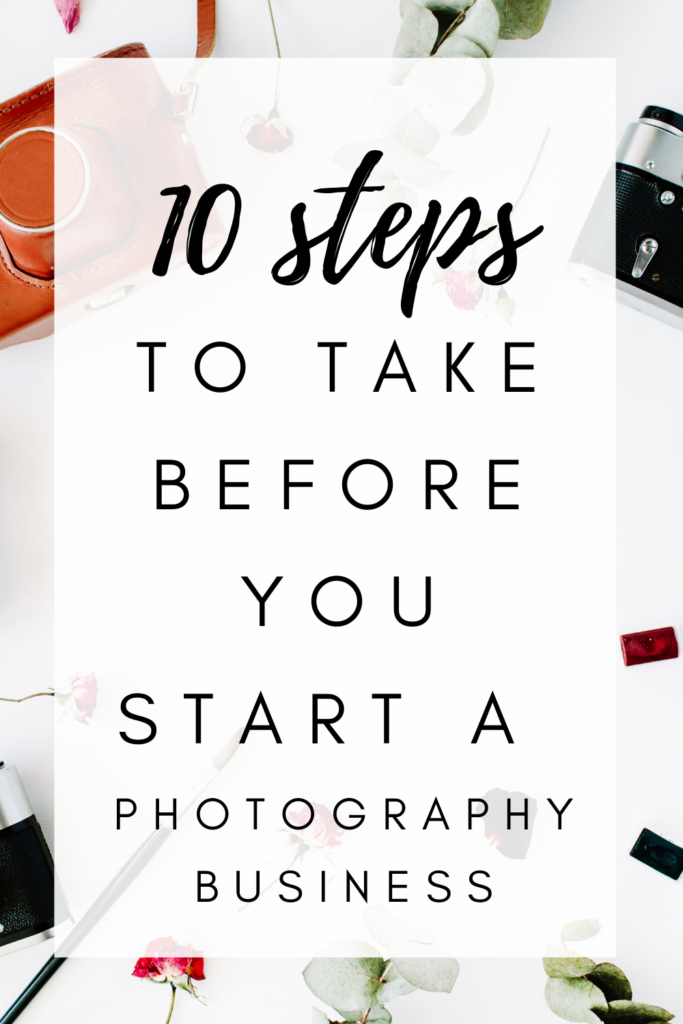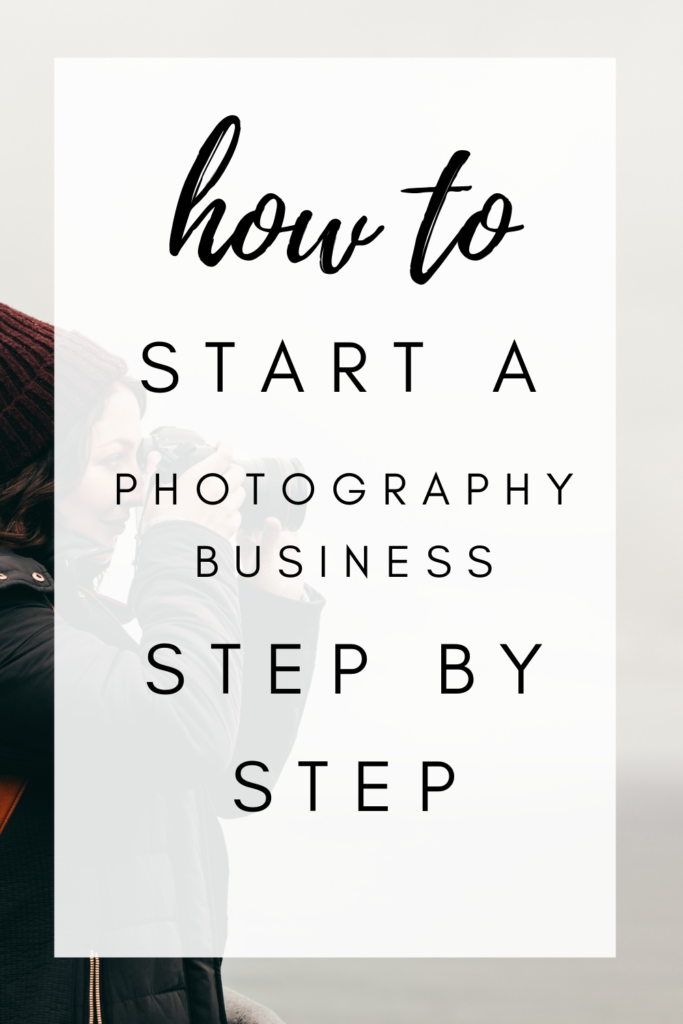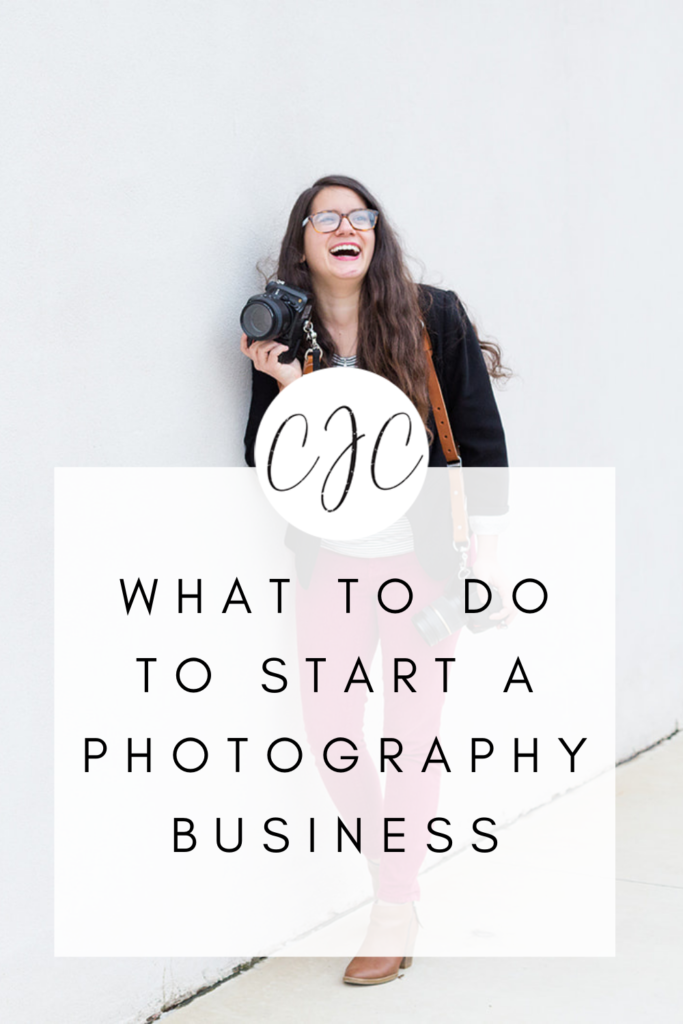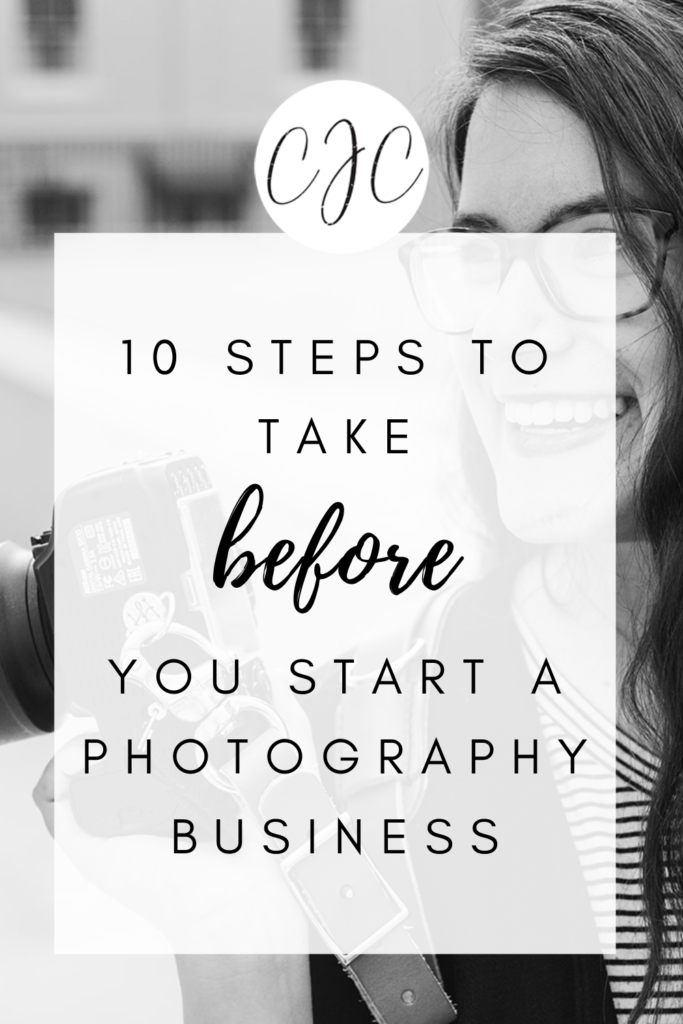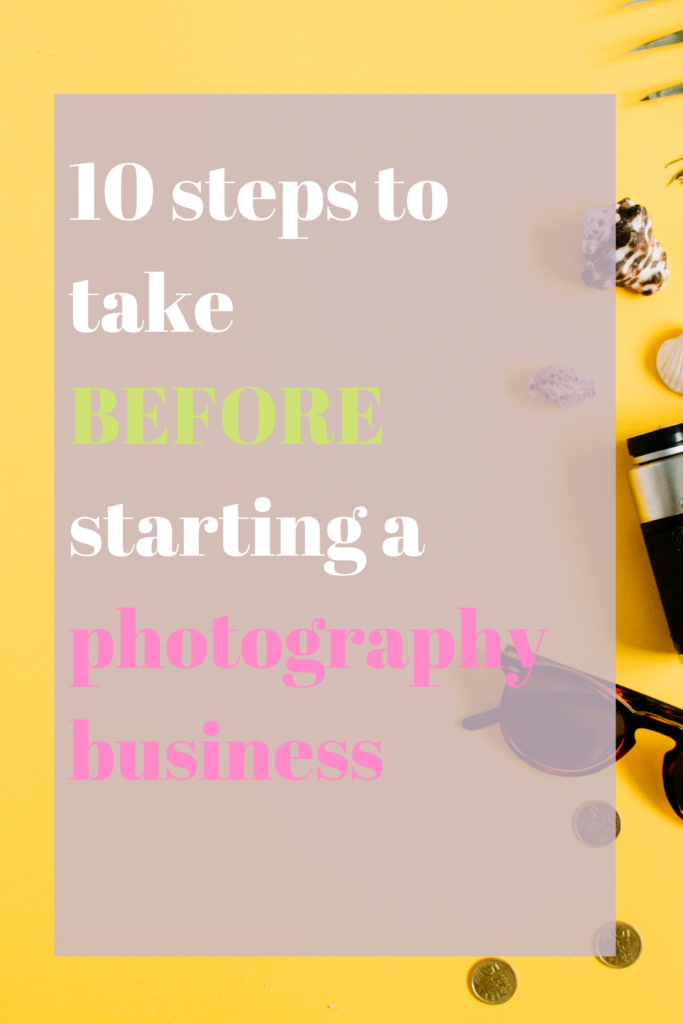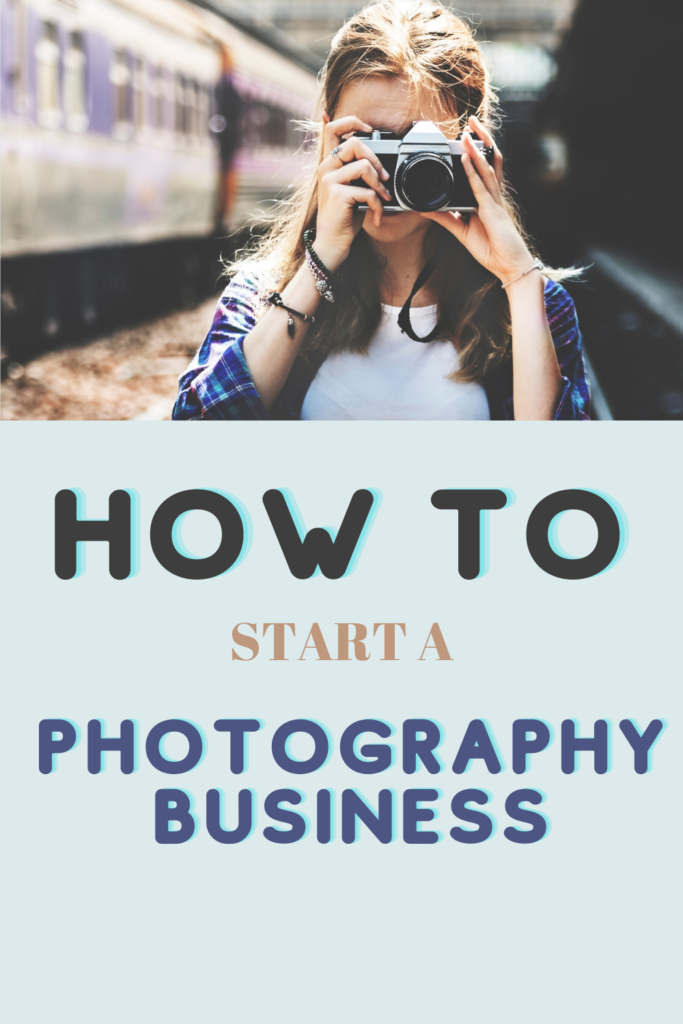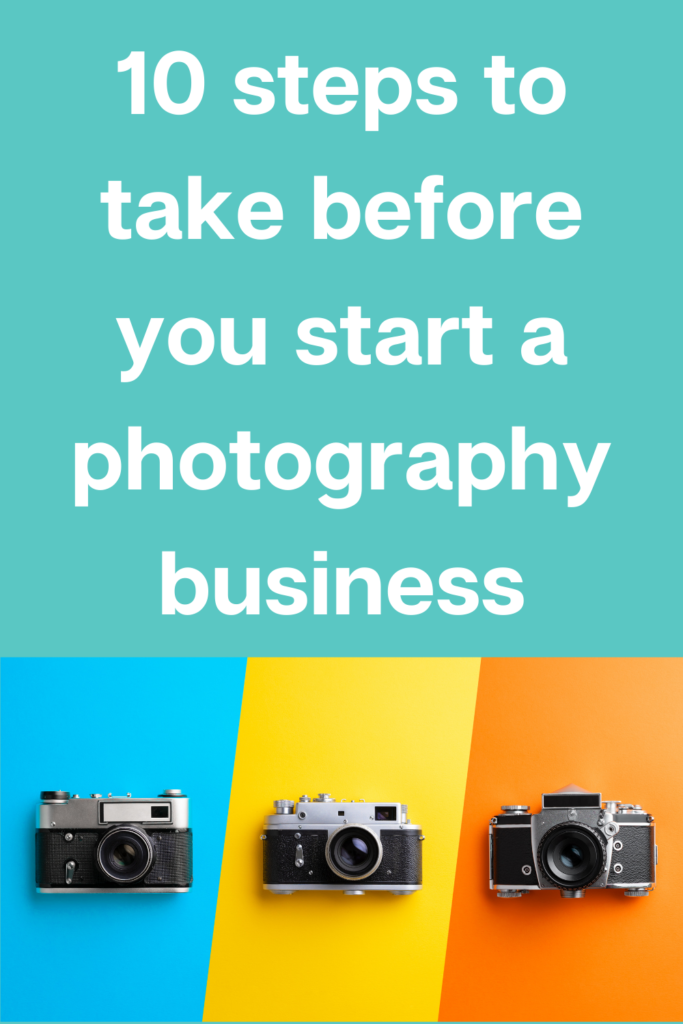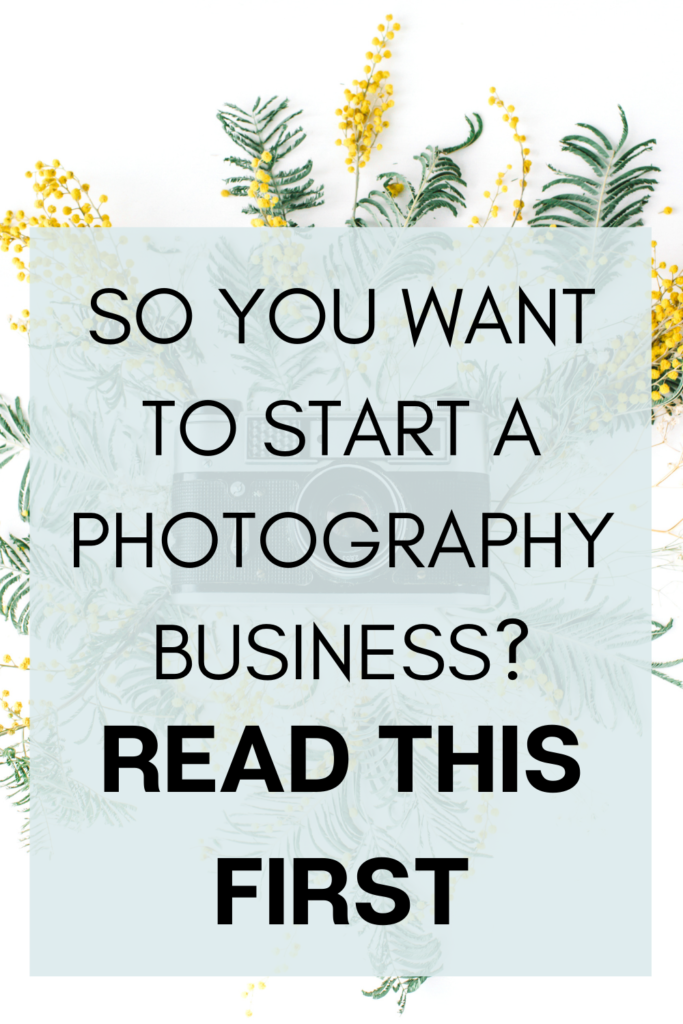So you want to start a photography business? YEAH! That’s awesome, and you should pursue it!! But, before you get all gung ho about shooting gorgeous couples and details or traveling the country to shoot landscapes, there are some things you should know! The biggest pain point for most people that want to start a photography business is the whole BUSINESS side of it! To do it the right way, there are some steps that you need to take!
Most people don’t want to think about that. We want to just get out there and shoot! You buy the gear, you get the clients, and you think that’s it. But it’s not!! You’re telling me I need to be paying sales tax? I need to have insurance?? You mean I need to talk to a lawyer??? Yep. If you’re a photographer offering services and delivering prints or flash drives to your client, all of these things apply! It is MUCH easier to tackle these things before you start a photography business than later. The last thing you want to do is get waist deep in this business and realize you are doing something illegal!
To help you in this crazy journey, I’m sharing 10 steps to take before you start a photography business. The main thing I want to stress is that I am NOT a tax or legal professional. I’m just sharing with you my experience in hopes of making it a little easier! My advice should in no way be taken as definitive! Laws change all the time, and there are different laws for different states. This is just a starting point for you!! Also, I am giving you basic nuggets of information. I am not going in depth at all! You should have in depth conversations with legal and tax professionals!! Okay, let’s dive in…
Steps to Take Before You Start a Photography Business
1. Find a Business Mentor
The best thing you can do for your business is to get a business mentor! It’s incredibly helpful to have someone to talk to who’s been there, done that! And guess what? This part is super easy because you can actually get a FREE business mentor from SCORE.org. It’s an INCREDIBLE resource and I highly recommend getting a mentor!! If you want help beyond that, I also offer mentoring sessions! Read to the end to find out how to get in touch with me.
2. Talk to An Accountant
This is SO important, and so often neglected!!! Running a business is not easy and shouldn’t be taken lightly. There are federal and state laws about conducting business, so you will want to talk to a professional! An accountant will help you register your business, get your business licenses, and file your taxes. Depending on the kind of services you offer, you may have to pay sales tax. You also may need to be paying personal property tax on your equipment, and you may be required to send your second shooters 1099s at the end of the year!
Many states require photographers to pay sales tax on their entire photography package price, even if they aren’t offering physical products to their clients. Some states (like South Carolina) only require sales tax to be paid if physical products are offered. By the way, a flash drive or CD counts as a physical product. And most (if not all) states will require you to pay sales tax on the entire photography package price because all of your time, labor, editing goes into delivering that physical product to your client, even if it’s just a flash drive. In SC, you will need to register with the SCDOR to pay sales tax, and this is a monthly payment. So it’s important to get this done BEFORE you conduct business!
I talked with two accountants that didn’t know that photography businesses were required to pay sales tax on the full package price. The SC law tax law does state that is the case. Make sure your accountant is well versed in small business laws. One accountant I spoke to didn’t know this at first, but was able to look it up for me.
3. Write a Business Plan
How much money do you want to make for you to consider your business successful? How will you set up your pricing, and how many bookings will you need to get to be successful? What is your cost of doing business? You won’t know the answers to these questions if you haven’t spent time writing a business plan! I used to be afraid of writing a business plan and didn’t really know what one was. It wasn’t until I’d been doing business for almost 10 YEARS that I actually made the time to write one. I was conducting business and had no way of gauging if my business was actually successful!
4. Determine what kind of entity your business will be!
Will you be a sole proprietor? An LLC? Not sure? Seek professional counsel on this! The answer to this question will matter a lot when it comes to how your business is organized, what licenses you need, and how you will file your taxes.
5. Check that Your Business Name is Available
Before you create an amazing business name complete with a logo, website, and branding package, you’ll want to make sure that someone else isn’t already using that name. It’s pretty easy to do this online by doing a business name search on your state government’s website.
6. Apply for any licenses and permits you might need
You may need to register your business name with the state. In many states, if your business name is your name followed by what you do (Christi Johnson Photography), you may not need to register your business name. But if it’s not your name, you will need to! Some businesses will need to register with the secretary of state, and some just with the department of revenue. And you’ll also probably need to obtain a business license, or multiple licenses depending on where you conduct your business. If you conduct business on Greenville city property, you need a business license in Greenville. Also, remember when we talked about sales tax? If you’re offering physical products, you’ll need a sales tax permit too. A google search about starting a business in your state will give you a good starting point with this, but it’s always best to talk to a professional.
7. Set Up a Business Bank Account
You will want to keep all of your personal money separate from your business income. This will make it so much easier when it comes time to pay your taxes to figure out how much you actually made and how much you actually spent. Many banks or credit unions offer free business banking. Obtain a business debit card and checks. It’s also helpful to get a business credit card for online purchases!
8. Develop Great Contracts
As much as we as creatives don’t like to get all nitty gritty about the logistics of photography coverage and the ins and outs of a contract, we have to. It’s a business. It would be so easy to verbally agree that we’ll photograph a certain session at a certain time, but you’d be surprised at how much trouble you can get in if you don’t have a written contract. Thelawtog.com is a GREAT resource for this!
You should also talk to a lawyer to make sure your contract protects both you AND the client and that you’re using the right wording! You will also want to think about what happens to your business if you pass away. Talk with a lawyer to help you with this and make sure you and your family are protected. Oh, and use your business account to pay for the fees. 🙂
9. Get Business Insurance
You may not think you need it, but it is a good idea to have it. Some venues don’t even let uninsured businesses shoot at their location. Business Insurance can cover your gear if anything breaks and also cover you if someone tries to sue you. It sounds far fetched, but it does happen.
10. Get Excited, because the hard stuff is DONE!!!!
Get excited about your new gear, your new clients, get to work on your brand and website, and have FUN being a photographer!!!
After You Start a Photography Business
Keep Amazing Records
Keep records of everything! Your mileage is a huge one (I’m a big fan of Mile IQ!). Also, your receipts for meals/coffee with clients, receipts for purchasing prints, advertising and marketing expenses, equipment costs, supplies, etc. Keeping records as you go will save you a ton of heartache at tax season!
File Your Taxes
You must report your income on your tax return. And sometimes, depending on how your business is structured, you may even need to file taxes if you didn’t make any money at all. Talk to a tax professional!!! You also may be required to make quarterly payments, so be ready for that too! I know it’s easy to start out taking photos for people and not keep track of the money you’re making. But if you’re accepting money, you have to report it. If you can’t justify the cost of having an accountant prepare your taxes every year, then talk to someone when you are starting your business and get some insight for how to file your taxes as a business owner! I currently file myself using online software, not an accountant, but I did have a few meetings with accountants beforehand to make sure I wasn’t missing anything!
Still want to start a photography business??? Take a deep breath…
Once your business is up and running, it is not terribly difficult to keep it up. The biggest pain points are those first steps! I know this sounds overwhelming, but think about it – once it’s done, it’s DONE! It won’t have to hang over your head anymore. You’ll be able to get out there and do what you love to do – take amazing photographs!!
Also, here are some more resources for you!
The South Carolina Business One Stop: https://www.scbos.sc.gov/
A great starting place for how to start a business in South Carolina!
The Law Tog: https://thelawtog.com/
Tons of legal resources for photographers!
Want to Learn More from Me?
If you found this helpful but want more guidance about getting started with your photography business, check out my free training on legalizing your business as a sole proprietor.
I also offer mentoring sessions! Email me at christi@christijohnsoncreative.com to get more info!
Check out my course here!
If you liked this article, consider sharing it on Pinterest!
